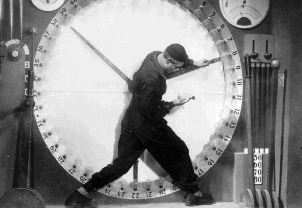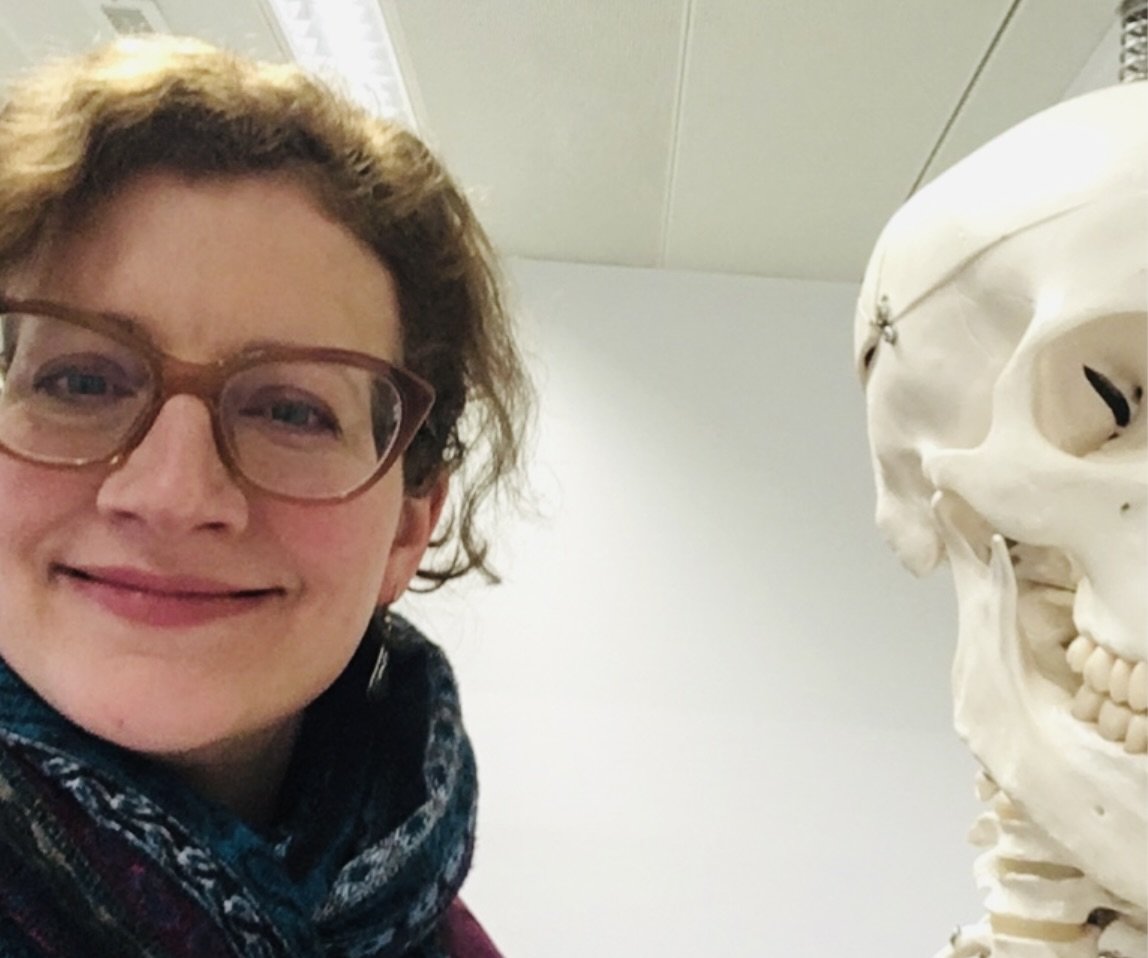Uncomfortable Bed-Fellows: Musicians and Mental Health
AI-generated image using the prompt ‘Sigmund Freud and Ludwig van Beethoven asleep’.
A sceptic’s view of mental health offerings for musicians
It’s seems to me that there’s a lot of cognitive dissonance going on between musicians’ perceptions of mental health and their perceptions of the mental/emotional/physical demands of the profession.
Many musicians hold onto viewpoints that pit music-making against mental health, or view the act of diving deep into mental health issues as being potentially disruptive to and even harmful for creative processes.
Here are some belief patterns antagonizing health from artistry:
Belief # 1: No Pain, No Gain
The belief goes: a musician has to give until it hurts: where there’s no pain, there’s no gain. This goes back to a transactional and mechanistic (maybe even militaristic or materialistic/consumeristic) view that straining mental and physical health resources is a necessary means to an ends, the only way to cultivate artistic excellence.
“The fingers must become obedient!”
“If a lot of practice is good, more practice must be better!”
Belief # 2: Artists are Just Different
This belief indicates that artists tend to all be a little ‘off’ in the head, they derive artistic benefits from their psychopathologies. They might lose something precious if their mental health issues were ‘fixed’. This aspect of specialness contributes to a sense of isolation. Many musicians’ believe that no one else gets it, that their experiences in the profession are unique and fundamentally incomprehensible for those on the outside. A deep mistrust arises of those on the outside who offer impulses for change or for alternative, less-harmful, ways of engaging in their professions and in their lives.
Belief #3: We Need Unhealthy Things to Do the Extraordinary Tasks Set Out for Us
Addictive behaviors and other harmful things can be excused or tolerated when used in the service of artistic processes. What could be called “Riding the Addiction Wave” enables artists to remain stuck in harmful patterns because they believe that their artistic integrity and uniqueness are dependant on these pathologies. I’m thinking of the ‘greatest generation’ of jazz musicians, many of whom sadly believed that heroin was a gateway to transcendent artistic freedom. This belief may have worked for them (all addictions serve some purpose, after all), until it destroyed their lives and deprived the world of irreplaceable musicians. There were certainly other ways to unlock their creative voices. Many musicians found the keys before it was too late, thankfully.
At a meeting addressing artists’ mental health in The Green Room, my wonderful colleague, Angela Büche, refitted the well-known Joseph Bueys quote:
Joseph Beuys: Every Human is an Artist
to state that:
Every Artist is a Human.
So simple, but so true.
At this meeting, we intensively discussed how musicians and other artists tend to be viewed, and to view themselves, as either irresponsible and immature children in grown-up bodies, or else as super-humans: not needing to sustain themselves from the same life waters that mere mortals do. I remember talking to the a well-known British composer many years ago who said (with a wink): “You know, don’t you… composers exist on air and inspiration!”
Fun with AI…
Belief # 4: Mental Health is Boring and Normative
In the fields of psychology and psychiatry, particularly in the early-mid 20th Century, a great emphasis has been placed on The Normal .
The Mental Health Industry’s leaning onThe Normal (average, typical, and societally-determined) is often felt to be in conflict with artistic values, which could include the exceptional, visionary, eccentric, unique, perceptive, sensitive, and inward-directed. Many artists have viewed this emphasis on The Normal with an healthy dose of scepticism.
Society is what decides who's sane and who isn't, so you got to measure up.”
― Ken Kesey, One Flew Over the Cuckoo’s Nest
Consider that ‘normal’ wasn’t a term associated with human behavior until the mid 19th-century. In the concept of psychological normalcy, outlying individual behavioral traits are to be ironed out in order to correspond with the acceptable psychological profiles that mirror the values of the time. Sounds Orwelllian, right?
“Sanity is not statistical.”
To be normal or sane in this context appears to mean that one should give up on extremes, passions, peculiarities, and single-minded obsessiveness. One should become observant and compliant, an optimally-integrated functionary in the social metaverse, a well-behaved cog in our economic machineries.
Metropolis, Fritz Lang, 1926
What artist would want that?!
Instrumentalizing and Codifying Health
In artistic educational and occupational contexts, health is often instrumentalized in a way that is reductionistic, lacking in vibrancy and relevancy, and simply divorced from artistic processes.
Think of workshops and info-sessions in which the “getmoresleep/drinkmorewater/belessstressed/getfreshair/breathedeeply/sayommmmmmmmm”-messaging could not be more remote to the stresses, creative processes, everyday strains, joys, and trials of an artist’s life.
Health Offerings are often presented as an add-on to artistic life, and they are frankly often not wanted by the artists themselves. To be honest, they often seem ridiculous! Even I’m embarrassed by them, and have been guilty in the past of this boring health messaging because there wasn’t an alternative language or process to draw on.
Artists tend to only think about health when something has already gone wrong, when the body and spirit are already suffering from illness or exhaustion. Then comes the ‘Sunday-School-Teacher’ Mental Health Consultant to tell people to…
“getmoresleep/drinkmorewater/belessstressed/getfreshair/breathedeeply/sayommmmmmmmm”
How annoying (Guilty as charged).
Sunday-School-Teacher Me
What could be?
Health and wellness are such worn-out words, conjuring up spandex, salads, and “how-many-steps-did-I-take-today?”
It seems like we need another language around these themes that are so inherently and inextricably interwoven with life.
Maybe we could talk about Wholeness and/or Soundness instead? Maybe health could be intertwined into artistic pursuits with the same intensity and curiosity that the actual artistic processes can draw from us?
It’s probable that we don’t actually need a new vocabulary for health, perhaps just a new (or refreshed) way of looking.
People have been offering definitions for expansive concepts of health for almost 80 years, the most influential having been provided by the World Health Organisation in 1948, which was seen back then as an alternative to the prevailing medical definition of health as being the absence of disease.
Compare these definitions:
Health is the absence of illness.
Medical Model Definition of Health prevalent since the 17th century.
Health is a state of complete physical, mental and social well-being and not merely the absence of disease or infirmity.
World Health Organization, 1948
and lastly:
Health is seen as a resource for everyday life, not an object of living. It is a positive concept emphasising social and personal resources as well as physical capabilities. The extent to which an individual or (group of individuals) is able, on one hand to realise aspirations and satisfy needs, and on the other hand to change or cope with the environment.
World Health Organization, 1984
One notices the increasing nuance, inclusivity, and connection to social context. The biopsychosocial model has expanded recently to encompass spiritual health: the belief in a purposeful and meaningful life.
“It did not really matter what we expected from life, but rather what life expected from us. We needed to stop asking about the meaning of life, and instead to think of ourselves as those who were being questioned by life—daily and hourly. Our answer must consist, not in talk and meditation, but in right action and in right conduct. Life ultimately means taking the responsibility to find the right answer to its problems and to fulfill the tasks which it constantly sets for each individual.”
Health is an ever-evolving concept and an inextricable contributor to our life force. Perhaps, in the future, we will gain a simplicity that enables us to simply state :
Health is a means to life.
Are artists exempt from that ? I don’t think so.
In this context, hopefully health offerings can lose the scoldy, Sunday-School-Teacher aspect, and be as inspiring as the art itself. The body-mind is an endless source of wonder and awe. Why is it so hard to translate that wonder and awe into communication and interaction with artists?
It’s a life process for me to develop in my work a deep and nuanced language surrounding musicians’ mental health. I’m grateful to the artists, colleagues and clients, who have fed this language with their stories, problems, issues, and insights.
I’d like to end with a tribute to irreplaceable voices lost to drug addiction.
Clockwise: Chet Baker, Billie Holiday, Sonny Clark, Art Blakey, Bill Evans, Charlie Parker







